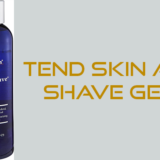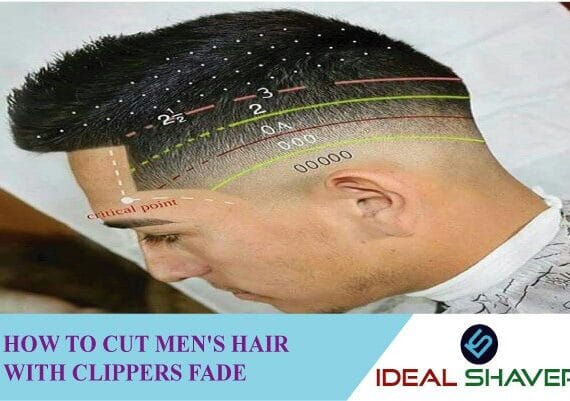
WHAT CAUSES ITCHY SKIN IN THE ELDERLY
It’s no secret that our skin changes as we age, and for many seniors, itchy skin becomes an unwelcome companion. While the occasional itch is a natural part of life, persistent and severe itching can significantly impact an individual’s quality of life.
In this blog post, we will delve into the reasons behind itchy skin in the elderly and offer practical solutions to alleviate discomfort and restore skin health.
The Aging Skin: A Primer
As we grow older, our skin undergoes a series of changes that make it more susceptible to itching. Sebum production, the natural oil that keeps our skin moisturized, begins to decline, leaving the skin feeling dry and tight. This decrease in moisture retention is further exacerbated by the thinning of the skin and reduced elasticity, leading to a weakened skin barrier. Additionally, the gradual decline in cell turnover and repair mechanisms makes it harder for the skin to bounce back from irritations.
Common Culprits of Itchy Skin in the Elderly
- Dry Skin (Xerosis): One of the primary reasons for itchy skin in elderly is dry skin, known as xerosis. With the decline in sebum production and moisture retention, the skin becomes parched, triggering sensations of itchiness. To combat this, regular and thorough moisturization is key.
- Skin Conditions: Seniors may experience age-related skin conditions like senile pruritus, characterized by generalized itching, or stasis dermatitis, which occurs due to poor circulation. These conditions can lead to persistent itching and require specific treatments tailored to the individual’s needs.
- Medications: Some medications commonly prescribed to the elderly, such as diuretics, antihistamines, and certain pain relievers, can have itching as a side effect. If you suspect your medications are contributing to your itchy skin, consult your healthcare provider for alternative options.
- Medical Conditions: Underlying chronic illnesses like diabetes, kidney disease, and thyroid dysfunction can manifest as itchy skin. These conditions disrupt normal bodily functions, affecting skin health as well.
Environmental Factors
- Humidity Levels: The level of humidity in your environment plays a significant role in maintaining skin hydration. Dry indoor air can zap moisture from your skin, aggravating itchiness. Consider using a humidifier to add moisture to the air in your living spaces.
- Temperature Extremes: Both excessively hot and cold weather can worsen dry skin and itching. Protect your skin from extreme temperatures and use appropriate clothing to shield yourself from the elements.
- Harsh Soaps and Cleansers: Aggressive soaps and cleansers can strip your skin of its natural oils, leaving it vulnerable to dryness and itchiness. Opt for mild, fragrance-free cleansing products to keep your skin clean without causing further irritation.
Lifestyle and Habits
- Hydration: Staying hydrated is crucial for skin health. Drink an adequate amount of water daily to maintain skin moisture from within.
- Diet: A balanced diet rich in vitamins, minerals, and omega-3 fatty acids can support skin integrity. Include foods like fatty fish, nuts, and leafy greens in your meals.
- Clothing Choices: When it comes to clothing, choose soft, breathable fabrics like cotton. Avoid scratchy materials that can exacerbate itchiness.
- Scratching Habits: It’s a vicious cycle – itching leads to scratching, which damages the skin barrier further. Use techniques like gently tapping the itchy area instead of scratching to minimize skin trauma.
Managing and Preventing Itchy Skin
- Proper Hygiene: Opt for lukewarm water and mild cleansers when bathing. Afterward, pat your skin dry and immediately apply a hypoallergenic, fragrance-free moisturizer to seal in moisture.
- Moisturization: Regular moisturization is your best defense against itchy skin. Apply moisturizer at least twice a day, paying extra attention to areas prone to dryness.
- Clothing and Fabrics: Choose loose-fitting, breathable clothing that won’t rub against your skin. Avoid tight clothing that can exacerbate irritation.
- Avoiding Triggers: Identify potential triggers like certain foods or allergens that might be contributing to your itchiness. Making informed dietary and environmental choices can go a long way in managing itching.
- Consulting a doctor: If your itching persists despite your efforts, or if it’s accompanied by other symptoms, it’s time to consult a healthcare professional. They can help identify underlying causes and tailor a treatment plan for you.
When to Seek Medical Help
While occasional itching is normal, persistent and severe itching should not be ignored. If you notice any of the following red flags, it’s time to seek medical attention:
- Open sores or skin infections: Itchy skin can lead to scratching, which in turn can cause wounds that become susceptible to infection.
- Sleep disruption: If itching is affecting your sleep patterns and overall well-being, it’s time to take action.
- Changes in skin appearance: If your skin is showing signs of redness, swelling, or inflammation, it’s a sign that something more serious might be going on.
Conclusion
Itchy skin in the elderly can be a challenging issue, but armed with the right knowledge and strategies, you can find relief. By understanding the underlying causes, adopting healthy habits, and seeking appropriate medical care when needed, you can help restore your skin’s comfort and vitality. Remember, taking care of your skin goes beyond aesthetics—it’s an essential aspect of your overall health and well-being.






Nike
Why visitors still use to read news papers when in this technological
globe everything is accessible on net?